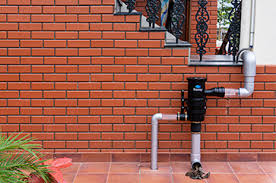The Importance of Rain Harvesting Filters
Rainwater harvesting is an eco-friendly practice that allows us to collect and store rainwater for various uses, such as watering plants, flushing toilets, and even drinking water in some cases. One essential component of a rainwater harvesting system is the rain harvesting filter.
A rain harvesting filter plays a crucial role in ensuring that the collected rainwater is clean and safe for use. It helps remove debris, sediment, leaves, and other contaminants from the rainwater before it enters the storage tank. By filtering out these impurities, the filter helps prevent clogging of pipes and pumps and improves the quality of the stored water.
There are different types of rain harvesting filters available, including mesh filters, screen filters, vortex filters, and media filters. Each type has its own set of benefits and is designed to cater to specific needs based on the size of the system and the level of filtration required.
Regular maintenance of rain harvesting filters is essential to ensure optimal performance. Cleaning or replacing the filter at recommended intervals helps prevent blockages and ensures that the harvested rainwater remains clean and safe for use.
In conclusion, a rain harvesting filter is a vital component of any rainwater harvesting system. It helps protect your water supply from contamination and ensures that you can make the most out of this sustainable water source. Investing in a high-quality filter will not only extend the lifespan of your system but also contribute to environmental conservation by promoting water efficiency.
Essential FAQs on Choosing and Using Rainwater Harvesting Filters
- What is the best filter for rainwater harvesting?
- How do you filter harvested rainwater?
- Do I need a filter on my rainwater tank?
- What kind of filter do you need for rainwater?
What is the best filter for rainwater harvesting?
When considering the best filter for rainwater harvesting, it is essential to take into account factors such as the size of the system, water quality requirements, and maintenance needs. The ideal filter should effectively remove debris, sediment, and contaminants from the collected rainwater while allowing for efficient flow and minimal clogging. Popular options include mesh filters for basic filtration, screen filters for medium-sized systems, vortex filters for high sediment removal efficiency, and media filters for comprehensive purification. Ultimately, selecting the best filter depends on your specific needs and preferences to ensure clean and safe rainwater for various uses in your harvesting system.
How do you filter harvested rainwater?
Filtering harvested rainwater is a crucial step in ensuring its cleanliness and safety for various uses. There are several methods to filter harvested rainwater effectively. One common approach is to use a series of filters, such as mesh filters, screen filters, vortex filters, or media filters, to remove debris, sediment, and contaminants from the collected water. These filters help prevent clogging of pipes and pumps while improving the quality of the stored rainwater. Regular maintenance of the filters through cleaning or replacement is essential to uphold the efficiency of the filtration process and ensure that the harvested rainwater remains free from impurities. By implementing proper filtration techniques, you can enjoy a sustainable and reliable source of clean water for your needs while promoting environmental conservation.
Do I need a filter on my rainwater tank?
Having a filter on your rainwater tank is highly recommended for maintaining the quality of the collected rainwater. A rain harvesting filter helps prevent debris, sediment, and contaminants from entering the tank, ensuring that the stored water remains clean and safe for various uses. Without a filter, the risk of clogging pipes, pumps, and other components of the system increases, leading to potential maintenance issues and compromised water quality. By investing in a proper rain harvesting filter, you can prolong the lifespan of your system, improve water efficiency, and ensure that you have access to high-quality rainwater for your needs.
What kind of filter do you need for rainwater?
When considering what kind of filter you need for rainwater harvesting, it is important to choose a filter that effectively removes debris, sediment, and contaminants from the collected rainwater. The type of filter required depends on the size of your system, the level of filtration needed, and the specific contaminants present in your region. Common types of filters for rainwater harvesting include mesh filters, screen filters, vortex filters, and media filters. Selecting the right filter is crucial to ensure that your harvested rainwater remains clean and safe for various uses while also prolonging the lifespan of your system. Regular maintenance and proper installation of the chosen filter are key factors in optimizing its performance and ensuring a reliable source of high-quality water for your needs.

